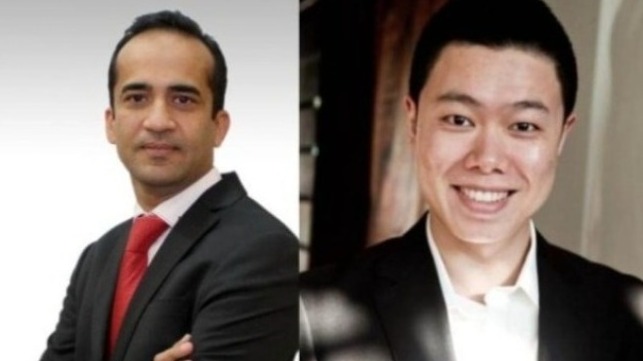Think Bigger: Learning Organizations

By Praveen Shukla, Crewing Director, and Ben Shao, Head of Learning & Development, Wallem
The ‘VUCA’ (volatile, uncertain, complex, ambiguous) environment has been exacerbated by the lingering Covid-19 pandemic, the ongoing war in Ukraine, and the fast pace of technological development in an increasingly competitive environment. At the same time, the maritime industry needs to ramp up its decarbonization efforts, and individuals and organizations alike must ensure they have the clarity and agility to meet current and future challenges.
While uncertainty prevails on decarbonization and alternative fuels, the ‘future’ is also here because seafarers already need training to safely handle and store a range of new fuels. While some continue to grapple with the implementation and effects of the training of the fourth industrial revolution, others are rightly preparing for the fifth – how to reintegrate the human element into a sustainable, technology-driven system.
At Wallem, the skills and competencies needed for the VUCA age include data and cross-cultural literacy, cognitive diversity, collaboration, innovation and creativity, critical thinking, and problem-solving.
At its core, our blended learning strategy considers the three learning domains – cognitive, psychomotor, and affective – as the basis for developing the methods and technological tools best suited to achieve optimum learning outcomes for seafarers. The aim is to ensure efficient knowledge transfer so that crew can apply their skills and experience in new contexts.
Wallem training centers provide a state-of-the-art base for in-person training, which remains crucial in teaching specific competencies. Among other facilities, our recently opened training center in Manilla has world-class simulators to provide an immersive environment. In addition, Wallem also provides onboard training, where our instructors can observe the behaviors of seafarers on the job and provide face-to-face guidance and feedback. Other skills can be taught effectively online; e-learning offers time- and cost-efficiency benefits, and seafarers increasingly favor bitesize, on-demand educational resources that allow them to refresh their knowledge when and as often as needed.
Developing critical thinking and problem-solving skills requires a move away from the old-school, one-way lecture format. Content needs to be engaging, and the trainer must take on the role of facilitator. Learners also build on previously acquired knowledge and skills through thought-provoking discussions and role-play/simulation exercises before applying them to new and unfamiliar scenarios.
Human beings tend to apply their skills at work based on their experience to competency-based training and conclusion, regardless of the evidence. Even seasoned professionals generally favor the evidence that supports their existing beliefs. However, in developing critical-thinking faculties, attention should be paid to competency-based training and teaching new behaviours centered on lifelong learning habits.
To remain relevant in a rapidly evolving maritime labor market, seafarers require self-awareness and the ability to think on their feet. By collaborating with their peers and challenging their long-held assumptions and beliefs, they can leverage the experience of others to expand their knowledge and expertise.
Teamwork is more important than ever before. Data science is helping us to understand what is relevant and how interdependencies work, while automation is helping seafarers minimize errors and improve reliability. Yet when issues arise, it is human beings we turn to take charge and navigate us through the VUCA environment.
At Wallem, we value our trainers, who observe subtle cues and give feedback in an empathetic manner to foster development. Our application of the Behavioural Competency Assessment and Verification framework – with a hybrid approach of on-the-job trainers, reflective learning, and simulation – aims to encourage lifelong learning habits.
Learning is for seafarers, too. ‘Learning organizations’ know how to learn more deeply; they embrace systems thinking, have a shared mental model, and foster solid cross-cultural literacy skills. In addition, they can make quick decisions and adapt to changing environments – whether internal or external – through transformation, innovation, and creativity. Organizations must create a company-wide learning culture to survive and thrive in this VUCA environment.
This year, we continue building dual-fuel capability, with seafarers and shore staff undergoing GI engine and LNG bunkering training. Here, we are also exploring technologies such as virtual and augmented reality. Equally crucial at Wallem is building strong teams through collaboration and enhancing soft skills through targeted leadership, DE&I, and communication training programs.
Regarding crew availability, a company such as ours must have a diverse range of source markets for seafarers; we are looking to develop crew pools from countries that could be better known for providing crew to the international shipping industry.
Since the only constant today is the VUCA environment in which we find ourselves, we must be flexible and agile in our training and learning approach. As a 120-year-old company, we continuously adapt to our changing environment, collaborating and innovating to realize our vision of offering world-class solutions that serve the Ship of the future.
The opinions expressed herein are the author's and not necessarily those of The Maritime Executive.
